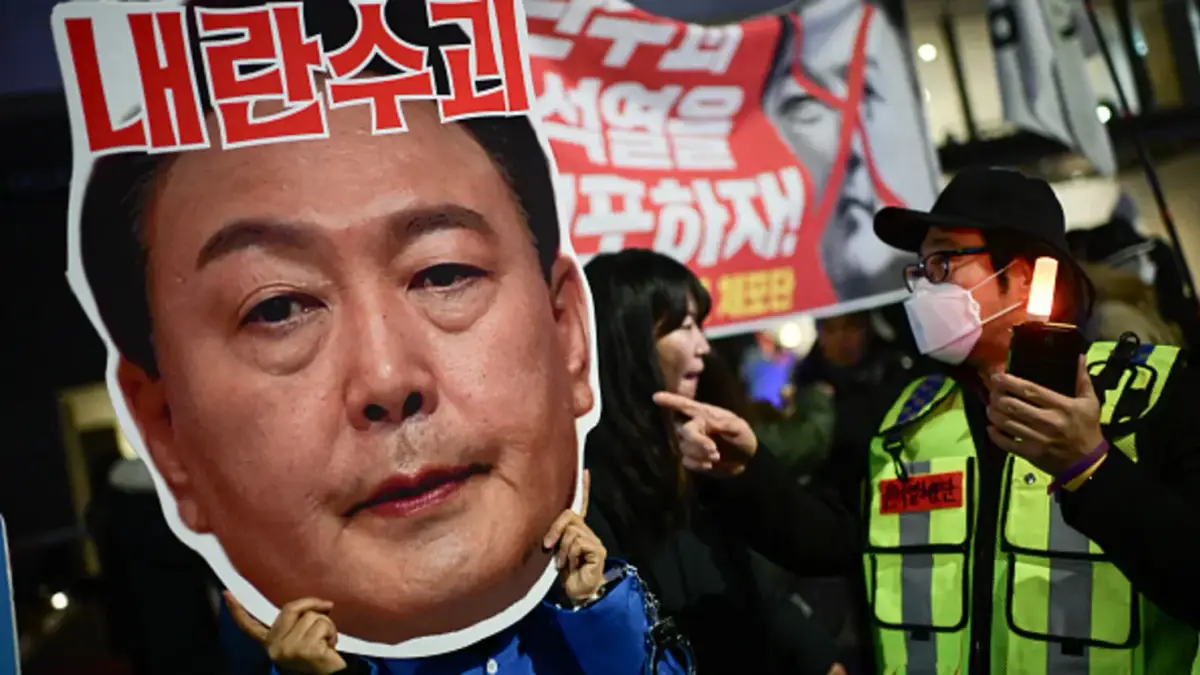South Korea is reeling from the aftermath of President Yoon Suk Yeol’s controversial six-hour martial law declaration, as police raided the presidential office and multiple government entities on Wednesday. The raids are part of an investigation into Yoon’s brief imposition of martial law, which has sparked widespread political unrest and public protests.
President Yoon, who issued a public apology over the weekend, was not present during the raid. Authorities also searched the Seoul Metropolitan Police and the National Assembly Police Guards, intensifying scrutiny on his administration.
Ex-Defense Minister’s Suicide Attempt
The political crisis took a dramatic turn with a suicide attempt by former Defense Minister Kim Yong-Hyun. Detained on insurrection charges related to the martial law declaration, Kim reportedly tried to end his life at a detention center in eastern Seoul.
Lawmakers were informed that Kim has been moved to a protective cell, with officials confirming that his health is stable. His attempt underscores the mounting pressures on key figures implicated in the controversial decision.
Legal and Political Ramifications
South Korea’s Corruption Investigation Office for High-ranking Officials has indicated that it may pursue President Yoon’s arrest if conditions permit. Additionally, the Justice Ministry has barred Yoon from leaving the country, signaling the severity of the ongoing investigation.
National Assembly Speaker Woo Won-shik announced the launch of a parliamentary probe, calling for the formation of a special committee to investigate Yoon. Meanwhile, lawmakers passed a bill to appoint a special counsel and demanded the president’s immediate arrest, along with that of seven other officials involved.
Public Backlash and Opposition Response
Tens of thousands of protesters continue to rally against Yoon, with calls for his resignation gaining momentum. The opposition-controlled Democratic Party is set to introduce a second impeachment motion, following Yoon’s survival of an earlier parliamentary vote.
The fallout has also divided Yoon’s own party. After party members left the chamber during the first impeachment vote, the party leader announced that Yoon would step down—a move that could reshape South Korea’s political landscape.
Martial Law Declaration and Its Fallout
Yoon’s martial law declaration last week, announced via a national TV address, accused the opposition-controlled parliament of threatening constitutional order and aligning with North Korea. The order mobilized the military, banned political activities, and temporarily halted the operations of the National Assembly.
The dramatic declaration was met with immediate resistance. Opposition lawmakers stormed the National Assembly and unanimously voted to reject the order, forcing Yoon to rescind it after six chaotic hours.
A Nation on Edge
The unfolding crisis has plunged South Korea into unprecedented political instability, with concerns over the nation’s democratic integrity and constitutional order. As investigations deepen and public dissent grows, the future of Yoon’s presidency remains uncertain.





